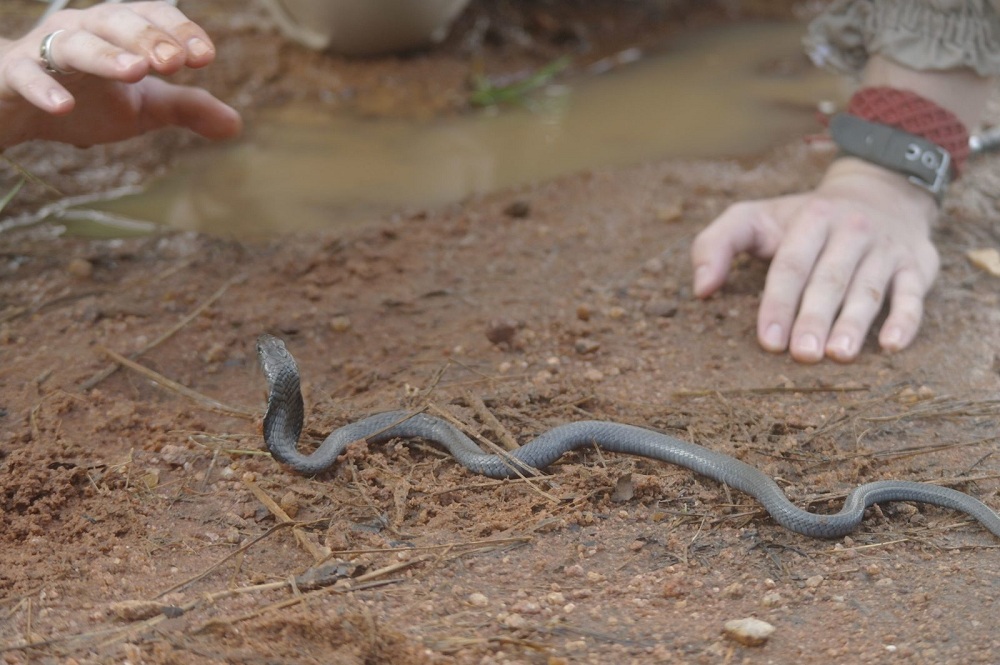Health Action International (HAI) has launched a new research, education and advocacy programme in Kenya in an effort to reduce the number of snakebite deaths and injuries in the country.
“Taking into account thousands and thousands of snakebite victims in sub-Saharan Africa each year, this Programme is long-overdue,” said Benjamin Waldmann, Snakebite Programme Manager with HAI.
“Available data suggests a high number of victims in Kenya, but due to under-reporting we don’t know the true extent of the snakebite problem here—it might be much greater than expected. This is why gathering solid evidence—in addition to educating and empowering civil society—is one of the three pillars of our Programme. Without solid data it’s difficult to make a case for snakebite victims on a governmental level.”
The objectives of the Programme, which is being delivered in collaboration with the Watamu-based
antivenom provider, James Ashe Antivenom Trust (JAAT), and the Global Snakebite Initiative (GSI),
are to develop a much-needed base of evidence on snakebite incidence rates and the price, availability and affordability of antivenom in Kenya and form a multi-stakeholder group, compiled of healthcare professionals, herpetologists, toxicologists, pharmacists and civil society representatives that will use the evidence base to provide health authorities with recommendations for effective snakebite management,
particularly in rural communities.
It also targets to equip Kenyan civil society with advocacy tools based on research evidence so they can press for greater action on snakebite; raise awareness and knowledge about snakebite prevention, first aid and treatment in communities and among civil society and healthcare workers.
As a first step in raising awareness and knowledge about snakebite, HAI, JAAT and GSI are distributing a free information poster to communities in Kilifi County. The poster urges anyone bitten by any type of snake to seek immediate treatment at a health facility, or to contact Royjan Taylor, HAI’s Snakebite Programme Coordinator for Kenya with JAAT, in case of an emergency.
READ: Kenyan starts petition to end accidents at Salgaa
In addition to providing relevant contact data, the poster identifies 28 common venomous snakes in Kenya.
“Educating people on the snakebite issue and improving health seeking behaviour are extremely
important, particularly among people in rural communities who are mostly affected,” said Taylor from
his base in Watamu. “But hand in hand with that, we have to provide policy recommendations that enable government and healthcare leaders to improve access to effective snakebite treatment
throughout Kenya.”
The HAI Snakebite Programme is set up for pilot phase in Kilifi County until summer 2018. It will then be expanded across Kenya and into Uganda and Zambia









Leave a comment